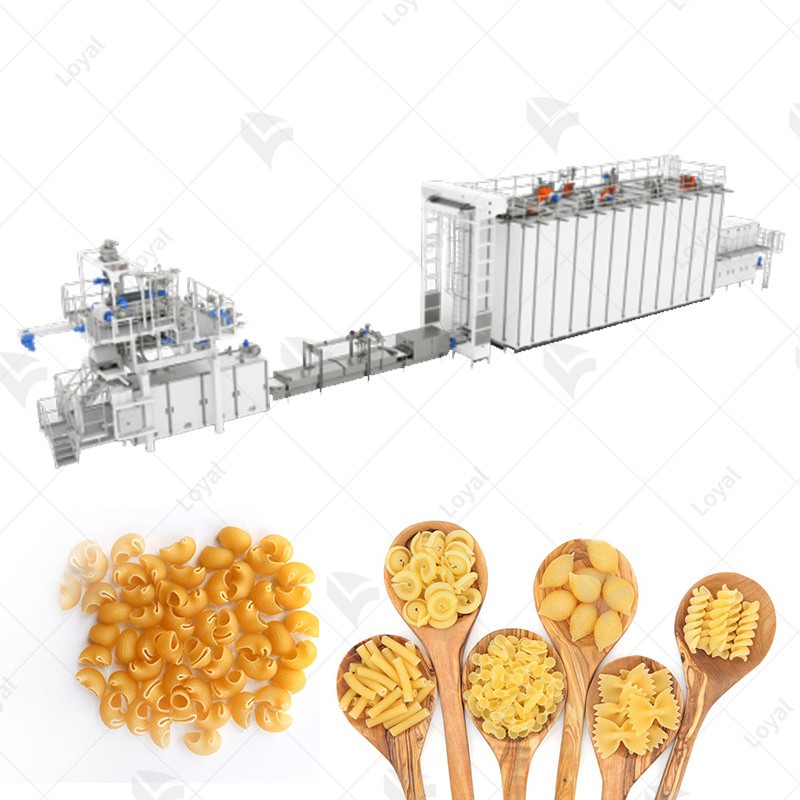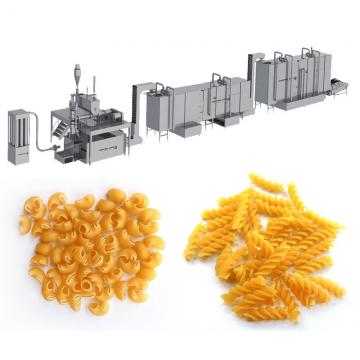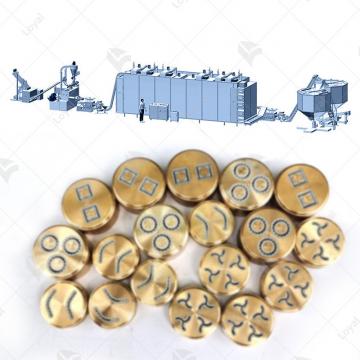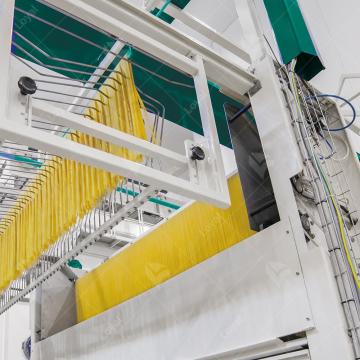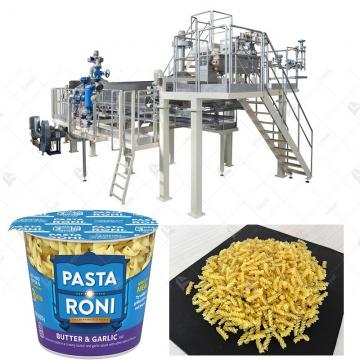The Ultimate Guide To Spaghetti Pasta Production Line for Optimal Efficiency and Energy Savings In 2024
The Ultimate Guide To Spaghetti Pasta Production Line for Optimal Efficiency and Energy Savings In 2024
In the realm of pasta production, the integration of automation has become a pivotal aspect, reshaping the industry's landscape. The advent of a fully automated Spaghetti Pasta Production Line marks a significant leap towards optimal efficiency and energy savings. Emphasizing this transformative shift is crucial for understanding the evolution of pasta manufacturing.Shandong Loyal Industrial Co., Ltd. has incorporated advanced technologies from Capitanio and HEMAKS in the production of its macaroni.
The concept of a fully automated Spaghetti Pasta Production Line revolves around harnessing cutting-edge technologies to streamline the entire production process. This introduction aims to shed light on the paramount importance of automation in achieving unparalleled efficiency and energy conservation within the food machinery sector.

Components of the Fully Automated Spaghetti Pasta Production Line
To comprehend the mechanics behind optimal efficiency and energy savings, a detailed exploration of the production line components is essential. The Pasta mixing and kneading unit, Extrusion and shaping machinery, and the Drying and packaging processes constitute the backbone of this fully automated system. The seamless integration of these components ensures a continuous and efficient workflow, setting new standards for pasta production machinery.
Advantages of Full Automation
The advantages of implementing a fully automated Spaghetti Pasta Production Line are multifaceted. Not only does it lead to substantial efficiency gains in production, but it also minimizes the need for human intervention, reducing the risk of errors. Furthermore, the adoption of energy-efficient practices contributes to environmental sustainability, while the consistency in product quality and output enhances the overall reliability of the manufacturing process.
Cutting-Edge Technologies Utilized
This section delves into the advanced technologies that power the fully automated Spaghetti Pasta Production Line. From state-of-the-art sensors and control systems to energy-efficient heating and drying mechanisms, the incorporation of smart automation allows real-time monitoring and adjustments. These technologies not only optimize the production process but also pave the way for a more sustainable and resource-efficient future.
Case Studies and Success Stories
To substantiate the transformative impact of a fully automated production line, real-world case studies and success stories take center stage. Businesses such as Banza, Colavita, Garofalo, Whole Foods 365 Everyday Value, Jovial, DeLallo, and Faella serve as prime examples, showcasing the positive effects on production output, cost-effectiveness, and sustainability within the pasta manufacturing industry.
Future Trends and Innovations
Anticipating the future trends in pasta production technology, this section explores potential advancements in automation and energy-efficient practices. The industry's evolution to meet consumer demands and sustainability goals is examined, offering insights into the direction pasta manufacturing is heading.
FAQs: Common Queries About Spaghetti Pasta Production Line
As we conclude our exploration of the fully automated Spaghetti Pasta Production Line, it's essential to address some common questions that may arise among industry professionals and enthusiasts.
Q1: How does a fully automated Spaghetti Pasta Production Line differ from traditional methods?
A: The key distinction lies in the level of automation. Traditional methods involve more manual labor, while a fully automated line utilizes advanced machinery and technology, minimizing human intervention.
Q2: What role do cutting-edge technologies play in the production line?
A: Cutting-edge technologies, including advanced sensors and control systems, enable real-time monitoring and adjustments. Energy-efficient heating and drying mechanisms contribute to sustainability, while smart automation optimizes the entire production process.
Q3: Can you provide examples of successful businesses using this production line?
A: Certainly. Notable brands like Banza, Colavita, Garofalo, Whole Foods 365 Everyday Value, Jovial, DeLallo, and Faella have successfully implemented the fully automated Spaghetti Pasta Production Line, showcasing increased production output and sustainability.
Q4: How does automation contribute to energy savings in pasta production?
A: Automation ensures precise control over energy-consuming processes, reducing waste and optimizing resource utilization. This results in notable energy savings throughout the entire production cycle.
Q5: What are the potential future trends in pasta production technology?
A: Future trends may include further advancements in automation, integration of artificial intelligence for predictive maintenance, and sustainable packaging solutions. The industry is evolving to meet consumer demands for healthier and more environmentally friendly products.
Q6: Is there a learning curve for adopting a fully automated production line?
A: While there is an initial learning curve associated with implementing new technology, manufacturers find that the benefits of increased efficiency and reduced operational costs far outweigh any transitional challenges.
Q7: How can smaller pasta manufacturers benefit from a fully automated system?
A: Smaller manufacturers can benefit by gaining access to efficient and scalable production processes, allowing them to compete on a larger scale. The automated system also reduces the need for an extensive workforce, contributing to cost-effectiveness.

Conclusion
In this journey through the fully automated Spaghetti Pasta Production Line, we've unraveled the intricate web of advanced technology, efficiency gains, and sustainability. From understanding the integral components to exploring case studies of successful brands, the landscape of pasta production has undergone a remarkable transformation.
As we move forward, embracing automation in the food machinery sector becomes not just a choice but a necessity. The success stories of industry leaders and the promise of future innovations beckon us to pave the way for a more sustainable and efficient future in pasta manufacturing. Let this be a collective effort, driven by a commitment to excellence, resource optimization, and a greener planet. The fully automated Spaghetti Pasta Production Line is not just a technological marvel; it's a paradigm shift that defines the future of pasta production.

